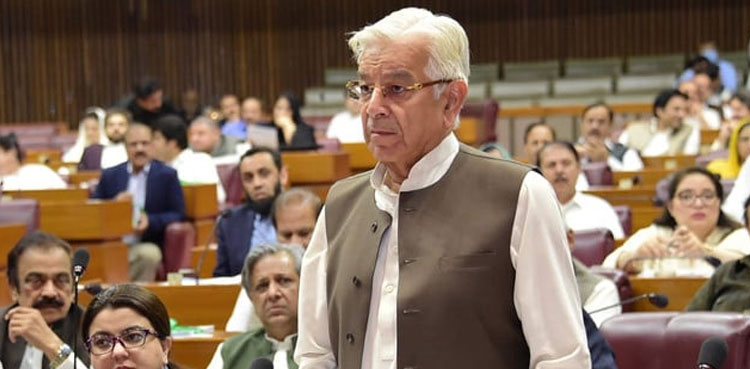He demanded an emergency session of the Organisation of Islamic Cooperation (OIC) to formulate a joint response and reaffirmed that “Pakistan stands firmly with Iran in every way.”
“Israel’s hands are stained with the blood of Palestinians,” Asif declared, calling for their rejection and isolation at the global level. “Pakistan has never wavered in its position against Israel—not since day one.”
Pakistan Urges UN Security Council to Hold Israel Accountable
Earlier, Pakistan’s Permanent Representative to the United Nations, Ambassador Asim Iftikhar Ahmad, addressed the UN Security Council during an emergency session. He demanded the Council immediately stop what he called “unjustified and illegitimate aggression” by Israel against Iran.
“This Council must deny Israel the free hand and the impunity with which it continues to defy international law,” Ambassador Ahmad stated. He further emphasized that Iran had the right to self-defense under Article 51 of the UN Charter.
The statement drew attention to Israel’s ongoing strikes not only in Gaza but also in Syria, Lebanon, and Yemen, describing it as a “continuing pattern of unilateral militarism.”
Handover of Indian Pilot Abhinandan Was a ‘Surrender,’ Says Asif
Turning to domestic policy and national security, Khawaja Asif also took aim at former Prime Minister Imran Khan and ex-Army Chief General Qamar Javed Bajwa for handing over Indian pilot Abhinandan Varthaman after he was captured in 2019.
“We captured an enemy pilot and surrendered him within 24 hours. We were ashamed then, and we remain ashamed today,” he declared before the Assembly. “It was a blow to Pakistan’s national dignity.”
Abhinandan was captured after his fighter jet was shot down during India’s aerial aggression. He was returned to India on March 1, 2019, as a “peace gesture”—a move now being reframed by current leadership as hasty and humiliating.
BLA and TTP Are Indian Proxies, Asif Warns
Asif also accused India of using terrorist groups like the Balochistan Liberation Army (BLA) and Tehrik-i-Taliban Pakistan (TTP) as proxies to destabilize Pakistan. “These groups are fighting a war on behalf of New Delhi,” he claimed, highlighting that more than 700 Pakistani soldiers have lost their lives in terrorist attacks over the past two years.
“Anyone who shows sympathy for terrorists is an enemy of Pakistan,” he said, urging tougher policies against external influence and internal sympathizers.
Bureaucracy Criticized Over Balochistan Postings
The Defence Minister also voiced frustration with the civil bureaucracy’s unwillingness to serve in Balochistan, a region plagued by violence. “Not a single soldier has requested a transfer from Siachen, one of the harshest stations,” he said, “yet the entire bureaucracy refuses Balochistan.”
He emphasized that while political problems require political solutions, external threats—particularly from India—cannot be ignored. “India is our eternal enemy—whether in Balochistan or elsewhere,” he concluded.
Conclusion: A Call for Unity, Strength, and Sovereignty
Khawaja Asif’s fiery remarks in the National Assembly served as both a foreign policy directive and a national security warning. From confronting Israeli aggression to exposing Indian interference, the Defence Minister urged both the international community and Pakistan’s internal institutions to recognize the gravity of the threats ahead.
His closing message was one of unity: “Just as we won the war against India, we will also win the war against terrorism.”







